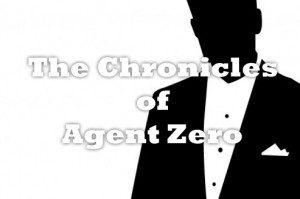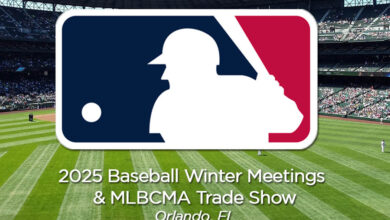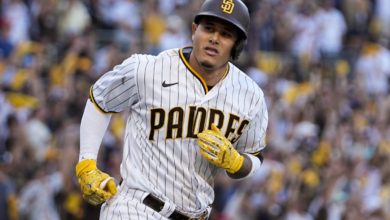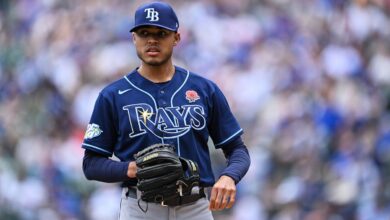
 The Chronicles of Agent Zero is a special feature at Through The Fence Baseball. “Agent Zero” is an agent for MLB players who writes about what it’s like to be an agent — the ups and downs, the travelling, etc. Agent Zero prefers to remain anonymous, but you can be assured his stories are true. Any questions? Just ask!
The Chronicles of Agent Zero is a special feature at Through The Fence Baseball. “Agent Zero” is an agent for MLB players who writes about what it’s like to be an agent — the ups and downs, the travelling, etc. Agent Zero prefers to remain anonymous, but you can be assured his stories are true. Any questions? Just ask!
Having discussed some of the issues of performance enhancing drugs (PED’s) and the issue agents face concerning them, I would like to revert back to my first entry on how I became a certified Major League Baseball agent. To do so, the story of my college roommate, now turned professional baseball player must continue.
As Justin continued his minor-league career, I too continued to pave the way for my career in baseball. In doing so, I quickly realized that since I had not played baseball at any significant level, I needed to bring something else to the table. For example, I quickly envisioned the day when I went up to a pro prospect to introduce myself and the most obvious question would be: Who do you represent?
How would I answer this question? What experience could I provide to demonstrate my competency? What attributes could I offer these young players, and who the heck is Agent Zero?
As you can imagine, it quickly became obvious I needed to strengthen my resume. In order to do so, I embarked on finishing my undergraduate degree, obtained my master’s degree and started law school. Granted, no rule or MLB regulation made these degrees a prerequisite to representing baseball players, but I thought this was important for a few reasons. First, I wanted something to fall back on in case the competitive nature of the sports and entertainment business proved too much to overcome. Second, I felt a law degree would be attractive to prospective clients who understand how the legal and sports businesses often run parallel to each other.
So, as I worked toward completing my degrees, Justin continued up the Giants organizational latter. I continued to spend as much time as I could with him, as I was away from school, but it quickly became evident that, although he had the natural talent, he did not have the same drive and motivation as his teammate did. Sleeping in was easier than getting early work in, drinking beer was more fun than getting to sleep early and, eventually, Justin’s velocity dropped and his talent no longer was on par with projected overall future potential.
Meanwhile, I continued taking course after course and, although Justin and I were alike in many ways, it was my motivation and drive to succeed that set us apart. I had limited natural ability where he had a lot, and my motivation to succeed was the catalyst to finishing law school and completing the bar exam in two and a half years. I sped up the process because as I saw the decline in Justin’s career, and with the uncertainty of his teammate careers, I did not want to get out of school and have no player contacts in baseball.
However, the excitement of passing the bar exam was quickly replaced by the realization that many of the above questions still had no answers to them. I still did not and had not represented any players. I had no experience, and although I had the drive to do whatever was necessary to succeed, was anyone going to give me a chance? Well, after quickly receiving no job offers and in speaking with other agents who encouraged me to just go out and do the job, I decided to travel to the baseball capital of the world, or as it’s formally known, the Dominican Republic.
When I landed, my excitement was replaced with uncertainty. I spoke no Spanish. I had never traveled to the country before, and the local contacts I made while in school were late in picking me up. However, I quickly fell in love with the country. My newly minted title as an attorney, United States citizen and the credibility gained by being in their country allowed me to escape many of the above questions that would have prevented me from finding work back in the States.
Instead of being asked who I represented, I was asked do you want to represent me, can you help and do you have time to see a cousin, brother or anyone for that matter as everyone had someone who was the next Albert Pujols or Pedro Martinez. In scouting the capital of Santo Domingo and San Pedros de Macoris, I could see how the island produced so much baseball talent. I was left thinking if these baseball fields could talk, they would scream “would you kids get off me” as there was limited or no school and baseball was being played every hour of every day.
After a week of being in the Dominican Republic, I left after signing two players. The first was Eliseo Cruz, a RHP from San Pedro de Macoris who threw 100 mph, and the second a young outfielder name Luis Reyes. However, as excited as I was, I could not help but feel like a fraud. These kids expected me to help, but I had no experience and I did not even know who I was to call or how baseball in the Dominican Republic worked. In fact, I did not even know if I could get the job done.
So, as I returned home, I began calling teams. I literally went on team websites and found which person(s) was in charge of certain regions and started cold calling teams. Having a player who threw 100 mph made it easy for the Directors of International Scouting to get back to me, and I slowly started learning how baseball in the Dominican Republic worked. Within a few months and after a few tryouts, the New York Yankees and I came to terms with Eliseo Cruz. I could not help but think was this was not nearly as hard as I thought it was going to be, but this initial thought could not be further from the truth as reality would quickly set in when … (Stay tuned.)





